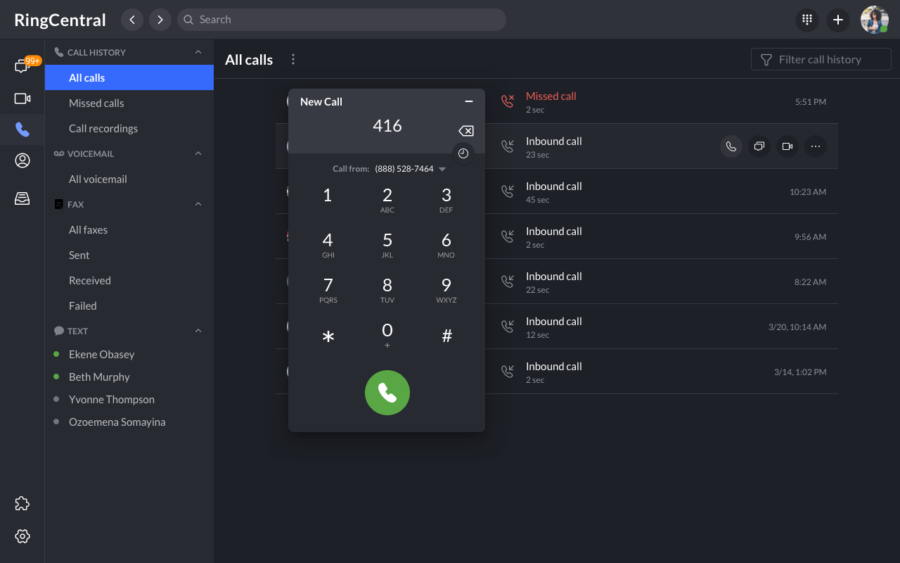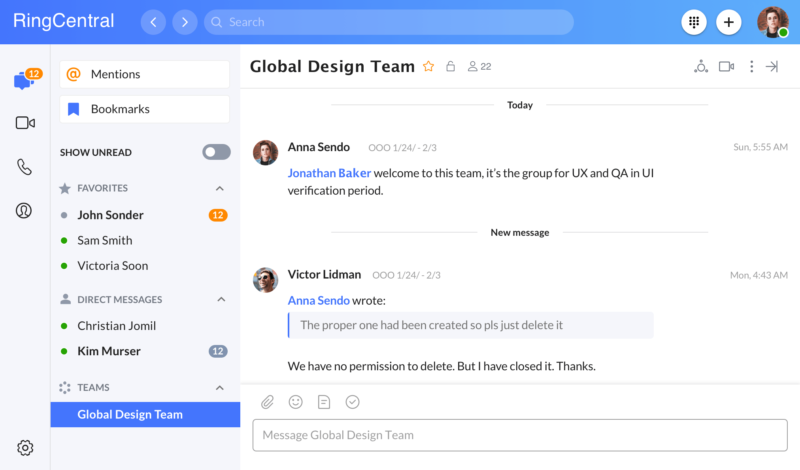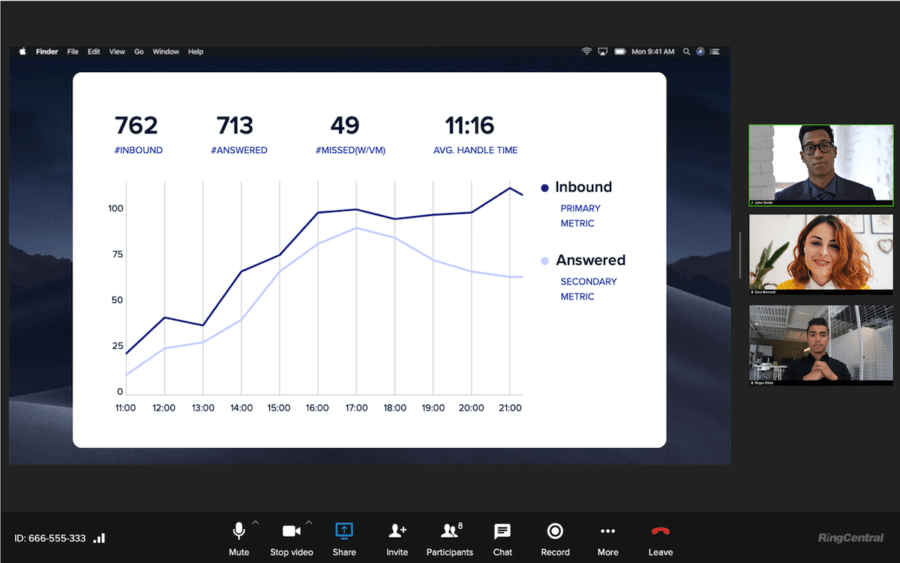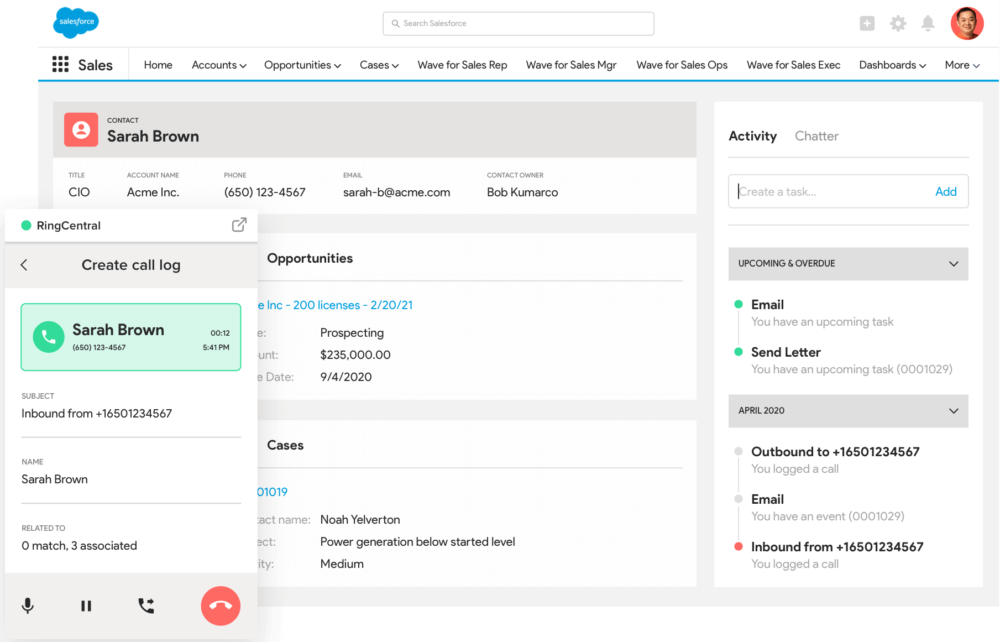Business terminology can get a little complicated. Between founder, CEO, Vice President, Managing Director, CTO, and CFO, there’s a lot to unpack.
For startups especially, you need to understand these positions to organize your company’s hierarchy. That is, where you and your employees fit within the company.
You’ll also need to establish when and how they work. For example, will you rent an office base, or does everyone work from home as part of a distributed team? If it’s the latter, you’ll need to consider how—as either a CEO or founder—you can stay accessible to your team.
We’ll expand later on how to use the right tools to help you with that. In this post, we’ll look at:
- What is a founder?
- What is a CEO?
- Founder vs CEO: how are they different?
- Characteristics of a founder vs CEO
- How both founders and CEOs can stay accessible to the team
First, though, let’s look in detail at the “founder vs CEO” difference to give you a better understanding of how to structure a startup.
🤝 Is your tech startup’s team collaborating as effectively as it could be? What should you look out for before you start scaling in earnest?
What is a founder?
To understand the difference between a founder and a CEO, let’s first look at the definition for each.
A founder is the person who starts their own company. They’re the one who came up with the business idea and acted on it. For example, Jeff Bezos of Amazon is probably the founder who comes most readily to mind. Amazon distributes goods worldwide, but once upon a time, it was a bookstore operating from a garage.
A founder needs to secure funding, bring resources, and market the brand. Unlike a CEO, the founder of the business will always remain the same, even if they leave.
In cases where there is more than one founder, they are co-founders. And, usually, the founder of a startup is also referred to as an entrepreneur.
What are the 4 key components of a successful startup?
What is a CEO?
A Chief Executive Officer (CEO) is the highest-ranking executive in the business. Typically, they work with the founder to carry out the business’s strategy and vision.
A CEO needs to delegate tasks, communicate with board members, and liaise with investors. Even though it comes with great responsibility, the title of CEO is often a coveted one because they take up the top position in the business and reap the benefits.
Some founders are also CEOs. For example, Steve Jobs was a co-founder of Apple, but also a CEO. Now, after his passing, Tim Cook has been appointed to the CEO role.
However, although every business has a founder, not every founder needs to be the CEO, too.
Founder vs CEO: How are they different?
Although both pivotal roles in a great company, founder and CEO are not the same thing. The founder is the creator of the business, who can then hire a CEO further down the line.
One of the main differences between the founder and CEO positions is their responsibilities. When a business owner begins creating plans for their company, one of the first things they need to decide is what title to give themselves and any other employees. They also need to create a business plan and set goals. On the other hand, the CEO needs to manage the employee talent pool and help to scale the business.
Here are some of the other main responsibilities you’d find in the job description of a founder and CEO:
Responsibilities of a founder
- Getting the business off the ground
- Determining the company’s vision
- Setting a vision for the company
- Managing finances, along with the Chief Financial Officer
- Assembling a strong team
- Maintain a good relationship with board of directors
- Making the final decision
Responsibilities of a CEO
- Implement the company’s business model
- Coach the team
- Help to scale the business
- Communicate with internal and external parties
- Set the company culture
Characteristics of a founder vs CEO
From Bill Gates to Mark Zuckerberg, there are certain characteristics associated with founders and CEOs. In fact, there are many who believe all CEOs should have the same traits.
Characteristics of a founder
- Entrepreneurship
- Willing to work unsociable hours to achieve their dream
- Strong networking skills
- Courage to take calculated risks
- Ambitious
Characteristics of a professional CEO
- Willingness to learn
- Good team management skills
- Strong communication skills
- A good listener
How both founders and CEOs can stay accessible to the team
One of the biggest responsibilities of both the founder and CEO is to stay accessible to their team. It’s also one of the biggest challenges, because founders and CEOs tend to be…
- In important meetings at all hours of the day (and night)
- Traveling somewhere for important meetings
- Deep in work planning for the next important meeting
Basically, they’re busy.
So how can they remain accessible to their teams and make employees feel as though they can talk to their CEO about any concerns or issues?
Traditionally, this is often referred to as the “open door” policy. But, as workplace dynamics change and more people are working remotely in large companies, how can those in charge make sure they maintain the same level of communication? By investing in smart software, of course.
A good communication platform, for example, is almost always the best way to solve this problem. It removes the communication barrier some CEOs and their team may experience, no matter how big or distributed the team is.
For instance, RingCentral’s desktop and mobile app is essentially an all-in-one solution that includes HD video, messaging, and phone calling—all in one interface:
We’ll discuss what this means for businesses later in this section.
Using a platform like RingCentral is key to making it easier for a business to adapt to a modern working environment. How?
Does the CEO / founder need to make phone or conference calls with an investor or board? ✅

Do they need to have a face-to-face check-in with their senior leadership team? ✅

What if they just need a fast and simple way to stay up to date with employees in group chats and give employees a way to message them with thoughts? ✅

With RingCentral, all of these functions—integrated phone calling, video conferencing, and team messaging—are all in one convenient place. This means that a CEO can stay in touch with managers and the rest of the executive team through pretty much any communication channel they prefer.
Need to make a company-wide announcement or update? With RingCentral, you can send a video conference invite straight to employees’ email addresses thanks to the Gmail and Outlook calendar integrations to let them know the time and place of the meeting.
During the meeting, you can also send files and screen share:

A virtual open door
By equipping all team members with this type of communication software, you’re also letting them know they can reach you when they need to. Today, a virtual open door is entirely possible, no matter where in the world you work.
Managers can message the CEO and execs with just a few clicks or jump on a call in just one tap. You no longer need to be in the office to be able to communicate effectively.
What’s more, for founders and CEOs who are budget-conscious, it’s a great way to cut down costs by using just one efficient piece of software. Versatile apps that can do multiple things well are especially important for smaller businesses and startups.
For instance, RingCentral integrates with apps like Gmail and Salesforce to allow your team to work seamlessly with existing tools:

And, with everything in one place, you’re streamlining your tech stack, helping the team stay productive, and saving them time because they don’t have to toggle between so many apps.
Founder vs CEO, or founder and CEO?
Although business structures differ, there’s always a founder or co-founders. From there, the business hierarchy may change as new job titles come into play as the business grows.
Now you know the ins and outs of founder vs CEO, it’s up to you to decide whether you think it’s crucial for your small business to have separate roles at this early-stage or whether you think you can take on both.
At some point in the future, you may choose to hire a new CEO, and when this happens, ensure they are passionate about your business and its goals. Because although the positions differ, together they can completely change a business’s course—hopefully towards even greater success.
Originally published Feb 15, 2021, updated Dec 30, 2022





